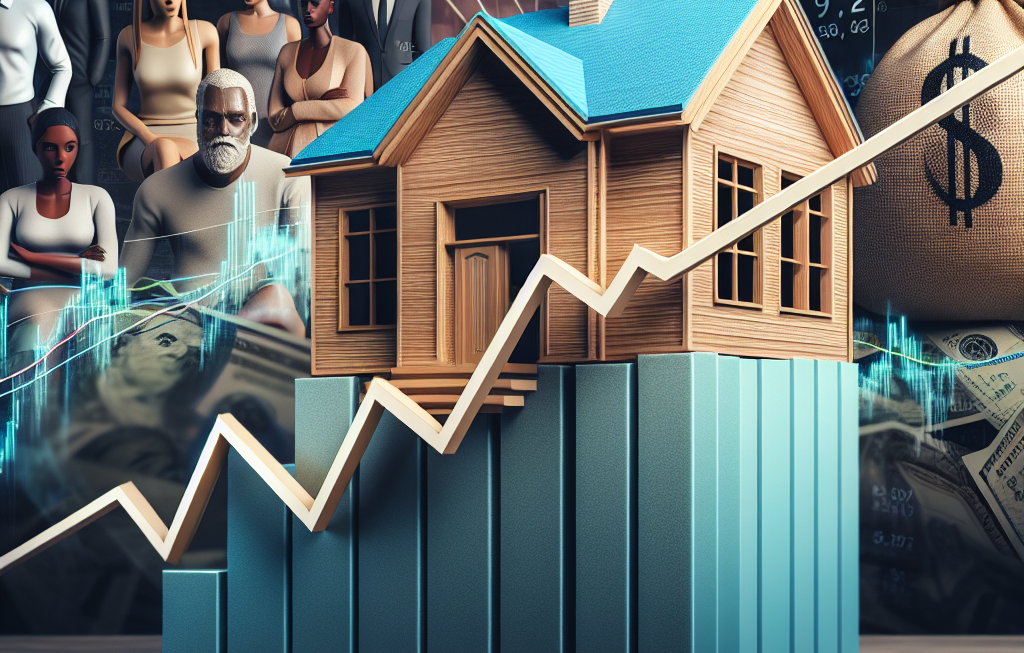Introduction
When it comes to buying a home, one of the most important factors that every potential homeowner should consider is the mortgage rate. Mortgage rates can have a significant impact on the overall cost of buying a home, as well as the monthly payments that you will be making for years to come. In this blog post, we will explore why mortgage rates are so important when buying a home.
What are Mortgage Rates?
Before we delve into why mortgage rates are important, let’s first understand what mortgage rates actually are. A mortgage rate is the percentage of interest that you will pay on your home loan. This rate can vary depending on a number of factors, including the type of loan you choose, your credit score, and the current state of the economy.
Impact on Monthly Payments
One of the main reasons why mortgage rates are so important when buying a home is because they have a direct impact on your monthly payments. A lower mortgage rate can result in lower monthly payments, making it easier for you to afford your new home. On the other hand, a higher mortgage rate can mean higher monthly payments, which could potentially stretch your budget to its limits.
Example:
- Loan Amount: $250,000
- Down Payment: $50,000
- Loan Term: 30 years
- Interest Rate: 3% vs. 4%
With a 3% interest rate, your monthly payment would be approximately $1,056. On the other hand, with a 4% interest rate, your monthly payment would increase to around $1,193. Over the course of a 30-year loan, this seemingly small difference in interest rates can add up to thousands of dollars in extra payments.
Total Cost of the Home
In addition to impacting your monthly payments, mortgage rates also play a significant role in determining the total cost of your home. A lower interest rate means that you will pay less in interest over the life of your loan, resulting in significant savings. On the other hand, a higher interest rate will mean that you end up paying more for your home in the long run.
Example:
- Loan Amount: $250,000
- Interest Rate: 3% vs. 4%
With a 3% interest rate, you would pay a total of approximately $154,000 in interest over the life of the loan. However, with a 4% interest rate, you would end up paying around $197,000 in interest. That’s a difference of $43,000, simply due to a 1% variance in interest rates.
Qualifying for a Loan
Another reason why mortgage rates are important when buying a home is because they can affect whether or not you qualify for a loan. Lenders take into account your credit score, debt-to-income ratio, and the current mortgage rates when determining if you qualify for a loan. A high interest rate could make it difficult for you to qualify for a loan, or result in higher fees and restrictions.
Economic Factors
Mortgage rates are not set in stone – they can fluctuate based on a variety of economic factors, including inflation, the Federal Reserve’s monetary policy, and the overall state of the housing market. Keeping an eye on these economic indicators can help you make an informed decision about when to lock in your mortgage rate.
Factors affecting mortgage rates:
- Inflation rates
- Federal Reserve’s monetary policy
- Housing market trends
Choosing the Right Mortgage Rate
Given the importance of mortgage rates when buying a home, it is crucial to carefully consider your options and choose the right rate for your financial situation. Working with a reputable lender and comparing rates from multiple sources can help you secure the best possible rate for your home loan.
Conclusion
As we have seen, mortgage rates play a crucial role in the home buying process. From impacting your monthly payments and the total cost of your home to determining whether or not you qualify for a loan, mortgage rates should not be overlooked. By understanding the importance of mortgage rates and carefully considering your options, you can make an informed decision that will benefit you financially in the long run.




